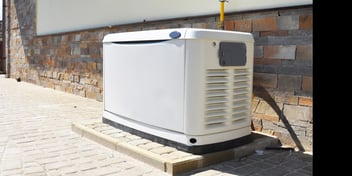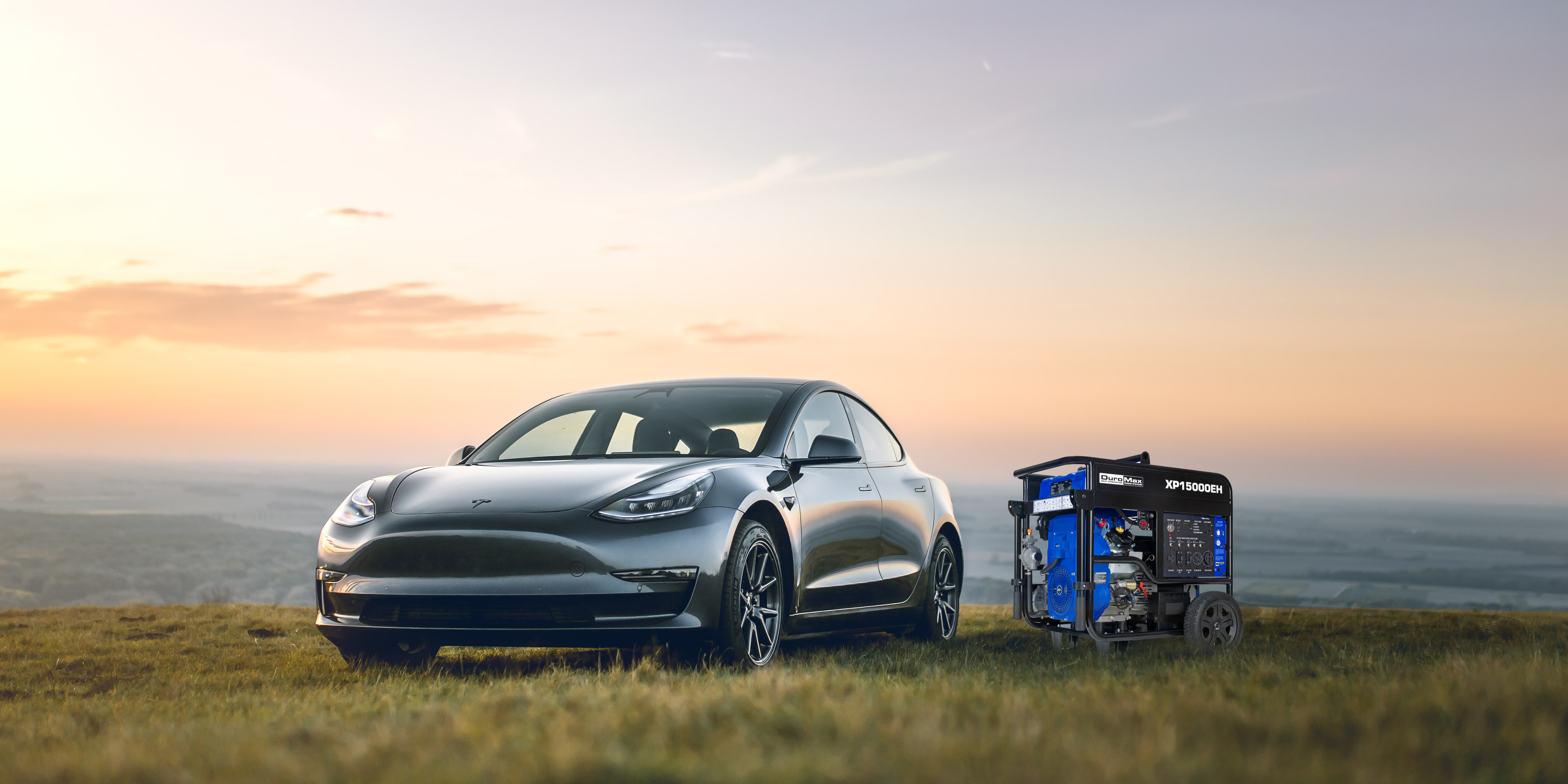By now we’ve all seen the viral social media photos and videos showing electric cars utilizing a gas or diesel generator to charge them as they go down the road. Yes, small portables on the trunk with a cord running to the charging port or better yet, the Tesla pulling an industrial 200 kW diesel generator on a trailer with the lead running to charge the car. Fact checkers call them staged or false information, electric car owners get upset, and gas-powered car owners point and laugh. But what’s the truth?
Can You Charge an EV with a Portable Generator?
Yes, you can! Okay, here’s a realistic situation for you. There’s a power outage and you have no idea when the power will come back. You are supposed to go to work or that important doctor’s appointment in the morning and your EV only has about 10 miles of range left. Could you use a generator to recharge an EV in a situation like this? Yes, but what if you need heat or AC for your home? For this example, let’s say driving range is more important than your family’s comfort.
Make sure your generator and EV are compatible, by checking your car’s owner manual for starters (most generators are going to give you Level 1 or 2 charging capabilities). That means it will likely still take hours and at least a couple gallons of fuel—to charge your battery for an acceptable range. So maybe this is more for these emergency situations?
- Level 1 (120V) 2-5 miles of range per hour
- Level 2 (240V) 15-25 miles of range per hour
With a stable output and the right amount of power, most EVs could have no problem charging with a portable generator, even if it does take a long time to see measurable range added. Obviously, the generator should be placed in an open-air spot like the driveaway or backyard while the cord runs to the EV (not while driving). If you’re already using portable home backup power for your home, then use one of those like you would regularly charge your EV. As we recommended, check the owner’s manual on both the EV and generator to be safe.
Currently the USA gets its electricity from three major sources. Fossil fuels account from 60.2%, Renewables 21.5% (wind, solar, hydro) and Nuclear Power 18.2%, according to the U.S. Energy Information Administration. We are literally in the infancy of electric vehicles. Range and time to charge will eventually get better, but in a pinch, a portable generator could do the trick.
To avoid all the pitfalls associated with counting on a small portable or hoping your home solar battery can do more for your EV, install a whole home standby generator like a Generac, Cummins or Kohler. These larger, more powerful options can run the home and recharge your EV. Something like the Cummins 40kW can do it all (https://generatormart.com/products/40kw-standby-generator-rs40).
A standby with an automatic transfer switch offers the best of both worlds as they have enough power to keep your home powered and enough juice to charge your EV without missing a beat. These units typically run on natural gas which rarely sees outages unless there is a huge earthquake, or you live far away from the source etc.
Solar is an option as well. This is a much costlier option as you will also have to invest in a battery wall or battery system besides the panel installation, and this power will not last as long as a natural gas standby generator.
Lastly, folks with electric vehicles are more dependent on the need for backup power in their homes. If the EV is low and you don’t have any backup power to help recharge it, you are stranded. People clinging to gas vehicles can simply drive to the local gas station, which probably has diesel generator backup power like a hospital etc. There are numerous organizations and businesses that count on these standby options for literal life support.
Conclusion
It can be done, but it’s not very practical unless it’s an emergency. It will take a lot of gas to move the “needle” on your EV. And under no circumstances should you attempt this while driving. So bottom line, get a larger whole home standby generator and you will never miss an opportunity or be left in the dark, unless your home is destroyed by a fire, tornado etc. Thanks for reading.
RELATED POSTS
Proin auctor nibh vitae urna lobortis, in vulputate erat facilisis. Sed lacinia lorem eget orci finibus, et maximus nisi sagittis.

Standby And Portable Generators For Emergency Power
Wherever you may live in the world, a power outage is always a possibility and a concern. During an extended power outage, your home or business...
Read more »
How to Choose the Right Generator
In an ideal world, there wouldn’t be natural disasters that cause wide-spread power outages, property damage, and loss of life. But the unfortunate...
Read more »
Consumer Generator Basics – Home Standby & Portable Generators
The two questions of “what kind of generator do I need” and “how big of a generator do I need” are the most common areas of concern for people...
Read more »
